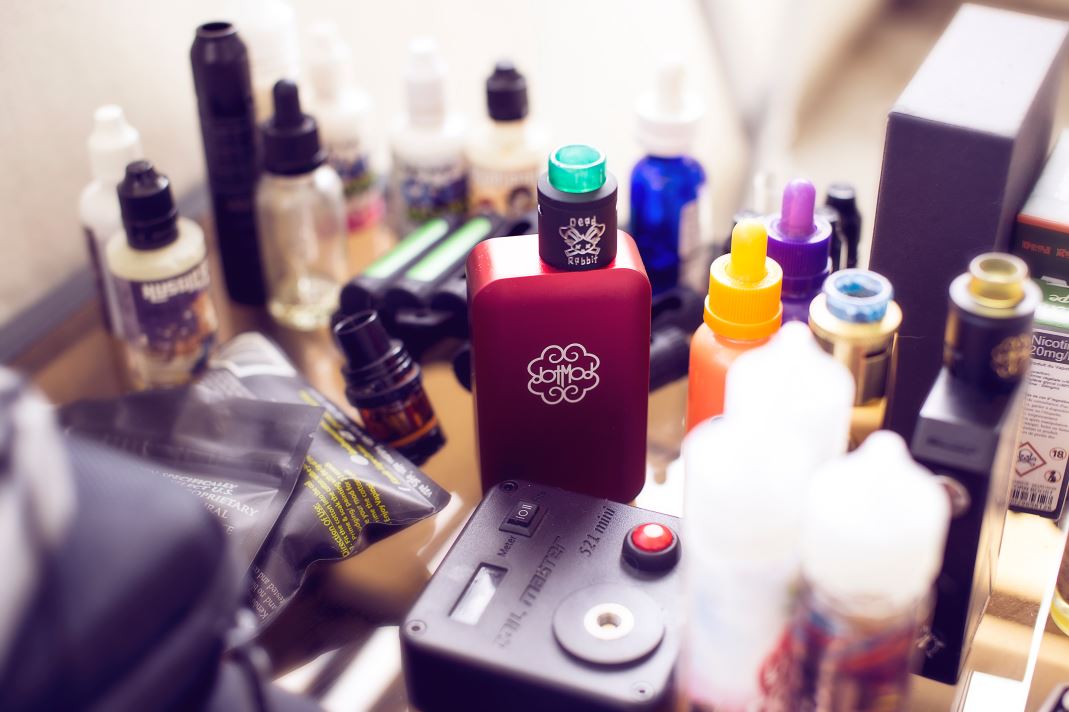Is the Success of the E-Cigarette Industry About to be Cut Short?

The electronic cigarette industry is one of the fastest growing markets in UK. Research from business intelligence firm Plimsoll Publishing has rated over half of the companies in the market as financially strong or good, and has found that nearly 20% companies have increased in value over their latest financial year.
According to Action on Smoking and Health, there are now more than 3 million users of e-cigarettes across the UK. While some have lauded “vaping” as a huge success story for public health, others remain sceptical about its long term side effects. Meanwhile, in the US a new problem has emerged; the growing popularity of – and in even addiction to – e-cigarettes from brands like Juul among young people, many of whom have never previously smoked.
Questions over Regulation
In the UK, both the e-cigarette and tobacco industries have been subject to the same strict regulation when it comes to both the manufacture and marketing of their products, which include a ban on direct advertising across a range of media; including print, TV and social media. It is also forbidden to market e-cigarettes to under-18s, and to make claims about vaping being healthier than tobacco smoking – despite conclusions from Public Health England and the Royal College of Physicians that vaping is at least 95% less harmful than smoking. These findings, combined with significant decline in the number of tobacco smokers during recent years, have caused e-cigarette companies to complain about the regulations; in August the Independent British Vape Trade Association (IBVTA) published criticism of the “disproportionate” rules on the advertising of e-cigarettes and vaping products.
There have been suggestions that post-Brexit the current regulations on vaping products may be reviewed. However, the aforementioned issues being faced in the US – where FDA restrictions on e-cigarettes have recently been tightened, but marketing remains relatively unregulated – suggest that marketing is instrumental in causing e-cigarettes to fall into the wrong hands. If this is indeed the case, it is unlikely that rules will be relaxed in the near future.
E-cigarettes on the High Street
The restrictions on online advertising have perhaps contributed to the success of e-cigarette retail outlets on the UK high street. At a time when other shops are struggling – in part due to the onslaught of ecommerce – vaping stores have been opening at a rapid rate.
In a market comprising many independent manufacturers, distributors and vendors, changes in regulation could have serious implications for the structure of the e-cigarette industry in the UK. David Pattison, senior analyst at Plimsoll remarks: “Smaller companies could find themselves forced out of the market, perhaps paving the way for acquisitions from larger companies or consolidation into larger retail chains, which have yet to fully evolve. While this could come from within the e-cigarette industry, there is also huge potential for competition from other industries to come into play.”
Tobacco and Pharmaceutical Industries Weigh In
Due to the sheer numbers of traditional smokers converting to e-cigarettes, there has been increasing pressure in recent years for the tobacco industry to react. There have already been significant acquisitions from traditional Big Tobacco companies, and the industry leaders have also developed their own vaping products, such as British American Tobacco’s Vype line or the VUSE brand owned by Reynolds America.
Another industry suffering from the increasing popularity of e-cigarettes is the pharmaceutical market; more specifically companies (such as GlaxoSmithKline and Johnson & Johnson) offering nicotine replacement products. In 2013 these firms stood to gain from proposed EU classification of e-cigarettes as medical devices, which would have limited their sale to pharmacies in many regions. The legislation did not succeed, and the pharmaceutical giants were reduced to marketing tactics to win customers: a year later Johnson & Johnson ran a controversial advert with the slogan “Don’t vape, quit for good” to advertise its Nicorette-branded products. The industry has since kept its distance, but if e-cigarette sales continue to rise they may reconsider their position.
In an industry where as many as 99% of UK consumers are current or former smokers, the nicotine replacement aspect of e-cigarettes is a significant selling point. But there are also longer-term concerns beginning to emerge. Fewer smokers now mean fewer customers in the future for e-cigarette companies, and the industry could effectively become a victim of its own success. For now, the industry continues to battle regulators as well as competition from other industries. But whether due to new regulation, competition or changing consumer behaviour, this fast-evolving industry must already start planning ahead to ensure its long-term future.


